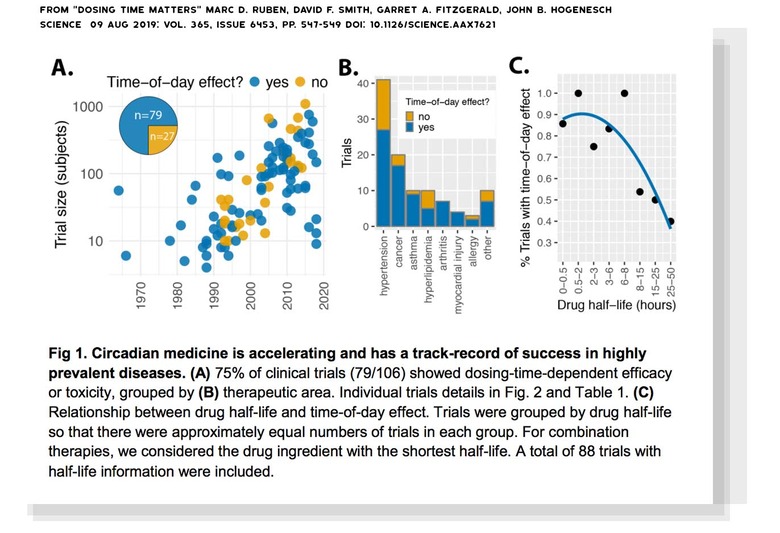Your drugs can work better: One simple life hack
There's ample evidence to suggest that taking medications at the same time of day each day increases efficacy, a study published this month in Science suggests. Researchers have poured over fifty years of clinical trials that considered and evaluated time-of-day administration of drugs. Over 100 clinical trials, 70 distinct drugs or combinations or medical procedures across 15 different therapeutic areas were studied. Of these, 75% found that "treatment efficacy or toxicity depended on dosing time."
Time-of-day recommendations are not the norm (for now)
It might seem like an obvious hypothesis to guess at: A bottle of pills that should be taken once a day will be most effective if taken exactly once every 24-hour period. That's exactly what was found for 75% of the studies done over the past half-century. That includes, as the new conglomerate study suggests, "dosing time across a number of conditions, including hypertension, cancer, asthma, and arthritis—diseases with extraordinarily high prevalence and unmet medical need."
Each drug has its own unique half-life, or time of efficacy in the body. The importance of time-of-day dosage for drugs with half-lives of around 6 hours (or less) are often prescribed with time-of-day directions. The shorter the half-life of any given medication, the more likely it is to get a recommended time-of-day dosage.
But for drugs with far longer half-lives, FDA-labeled time-of-day dosing recommendations are currently far and few between. Of the 50 most prescribed drugs under the scope of the U.S. Food and Drug Administration as of the publication of this article, only four have FDA-labeled time-of-day dosing recommendations.

Are my pills working?
Each drug has a different target in the body, and some drugs have an ideal point of administration each day. A significant amount of studies done on time-of-day delivery with one-per-day drugs showed efficacy in "administration of a drug to coincide with peak expression of its physiologic target."
Several different methods exist to increase efficacy in some drugs – targeting peak expression of a target is just one of several methods. Targeting low expression of an undesired target is another. Some drugs work best when harmonized with various body rhythms: absorption, distribution, excretion, or metabolism.
What time should I take my meds?
What time is best for me to take my pills? We most certainly are not licensed medical professionals, and I most definitely am not your father. So you'll need to get specific advice on your unique set of medications from your own personal doctor. Your meds MIGHT be more effective if taken at a specific time of day each day – studies aren't yet 100% conclusive on this notion.
According to the trial, there's significant (and growing) interest in the hypothesis that circadian biology is far more important in effective drug administration than we currently realize.
"The most commonly prescribed drugs help only a minority of patients who take them," said the study (by Ruben et. al). "Although the common refrain to this is a call for better genetic precision, circadian effect sizes can be just as large."
What we've looked at today is just a taste of the study called "Dosing time matters" as published in the latest issue of the scientific journal Science, August 9, 2019. That's volume 365, issue 6453. With DOI:10.1126/science.aax7621 as authored by the following team of four: Marc D. Ruben, David F. Smith, Garret A. FitzGerald, John B. Hogenesch.
